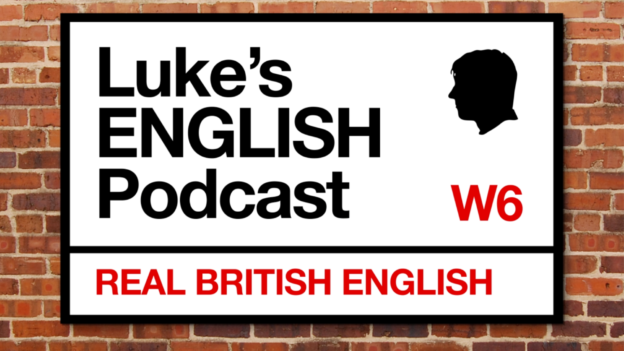Setting the world to rights: What does this expression mean? Listen to find out, and to hear a conversation in a pub with a friend & colleague of mine.
![]() Right-click here to download this episode.
Right-click here to download this episode.
According to the Macmillan dictionary this phrase means “to have a conversation with someone in which you exchange opinions on a range of subjects, especially opinions on how to solve society’s problems”.
That’s exactly what I did in this episode. Listen and you’ll hear me engaging in conversation with a colleague of mine named Eamon. We went to the pub for a quick pint and ended up setting the world to rights. Eamon is a very intelligent and interesting guy and I’m sure you’ll enjoy listening in on our conversation. I’ve decided it will help you immensely if you can read some of the phrases we use in this episode, and so I’ve written many of those things in a list below. You can use it to learn more vocabulary, understand the episode better, and generally become a more wonderful human being in the process. You’re welcome!
Vocabulary & Expressions
Here’s a list of some of the expressions Eamon used in our conversation:
1. “Eamon is Irish for Edmund” – <is ______ for…> means that this is an equivalent word in another language, e.g. “bonjour is French for hello”
2. “and of course I was named after the first president of The Irish Republic”
3. “he was a horrible man. He was nonetheless an iconographic figure” – nonetheless means ‘still’ or ‘nevertheless’, and ‘iconographic’ means being famous for symbolising something
4. “I do become aware of a cultural distinction” – a ‘distinction’ means a ‘difference’
5. “in rural parts of the country” – ‘rural’ means ‘of the countryside’
6. “There might be listeners who get a bit tetchy about that” – ‘tetchy’ means ‘irritated and angry’
7. “if you look at the history of these islands, we’re all intertwined” – ‘intertwined’ means ‘closely connected in complex ways’
8. “we called them grants, and we didn’t have loans” – a ‘grant’ is some money which the government gives to students to help them study. The student does not have to pay the money back, unlike in the case of a ‘loan’.
9. “English as a foreign language was beginning to boom” – to ‘boom’ means to have a good economic situation. The opposite is to ‘bust’ which means to have poor economic conditions.
10. “my lifestyle was becoming increasingly dissolute” – ‘dissolute’ means to ‘indulge in pleasures like sex or drinking”
11. “the workaholic culture” – a ‘workaholic’ is someone who is addicted to work, like the way an alcoholic is addicted to alcohol.
12. “apart from the odd blip as a lawyer” – a ‘blip’ is a moment of inconsistency, for example in Eamon’s life he managed to avoid having a proper job except for the odd blip as a lawyer. This means for most of his time he wasn’t a lawyer then on some moments he worked as a lawyer.
13. “Sorry that was a bit facetious” – ‘facetious’ means to make a joke about something which should be serious
14. “I sometimes worry that maybe I’m short-changing my children” – to ‘short-change’ someone is to give them a bad deal or to not treat them fairly
15. “I console myself” – to ‘console’ yourself means to make yourself feel better or to deal with bad news
16. “London is a very urbane place” – ‘urbane’ means ‘sophisticated’ and ‘cultured’
17. “I find Croations basically more inhibited” – ‘inhibited’ means ‘shy’ or unable to express themselves well
18. “Croats have a bad reputation for being ill-mannered and surly” – ‘ill-mannered’ means ‘rude’, ‘manners’ means the way you behave in public, and ‘surly’ also means ‘rude’ or ‘bad tempered’
19. “when it all kicked off” – to ‘kick off’ means to ‘start’
20. “it was a manifestation of people who felt like they’d been left out of the enrichment process” – a ‘manifestation’ is a sign of something else. To be ‘left out’ means to be excluded.
21. “…whose values had somehow curdled” – to ‘curdle’ is when liquid becomes solid (e.g. when milk becomes cheese)
22. “we’re bombarded with advertising left, right and centre” – to be ‘bombarded’ means to be attacked by things coming at us (e.g. bombs). ‘Left, right and centre’ means from every direction.
23. “I have very mixed feelings about those riots” – to have ‘mixed feelings’ means you can’t really decide because you have opinions on both sides
24. “I don’t really know where I stand” – to ‘know where you stand” means to ‘know your opinion clearly’
25. “the belief that the acquisition of things can make a difference to your life” – ‘acquisition’ means to ‘get’ something or to ‘own’ something
26. “I was ready to clip their wings” – to ‘clip’ someone’s wings means to cut the wings of a bird so it can’t fly
27. “to pull it off” – to ‘pull something off’ means to achieve something very difficult

